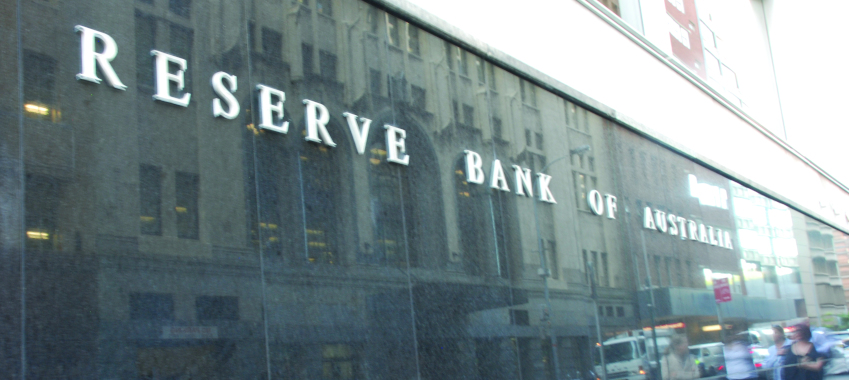
The Reserve Bank has come out swinging against surging inflation, with industry players now watching for impacts from a larger-than-expected rise to the cash rate.
The Reserve Bank of Australia (RBA) has decided to increase the cash rate by 50 bps, from 0.35 per cent to 0.85 per cent.
The move marks the largest increase to the rate in 22 years, since the RBA raised by 50 bps in February 2000.
It has also followed on from the 25-bp increase in May, when the RBA lifted the rate for the first time in more than a decade, up from its historic low of 0.1 per cent.
While economists had been certain a rise was on the cards, most had assumed the RBA would either choose from a 25-bp or 40-bp increase, after the central bank deliberated between the two options in May.
But as RBA governor Philip Lowe has explained in his monetary policy decision statement, the board had decided to take a larger step, amid high inflation pressures and the “still very low level of interest rates”.
He has also flagged additional rises for the months ahead.
“The board expects to take further steps in the process of normalizing monetary conditions in Australia over the months ahead,” Dr Lowe wrote.
“The size and timing of future interest rate increases will be guided by the incoming data and the board’s assessment of the outlook for inflation and the labour market.
“The board is committed to doing what is necessary to ensure that inflation in Australia returns to target over time.”
Treasurer Jim Chalmers took to Twitter to call the decision “difficult news for homeowners already facing skyrocketing costs of living, including spiking energy prices”.
“A better future awaits but first we have to navigate together this inflation challenge we inherited, and the rising interest rates that accompany it,” he stated.
Impacts for housing, mortgages and consumer sentiment
Paul Ryan, economist with PropTrack noted that expectations of higher rates have already weighed on the housing market, with prospective buyers now seeing their borrowing power constrained.
Financial markets have priced in a cash rate 2 percentage points higher by the end of 2022, which would raise mortgage repayments by another 24 per cent, Mr Ryan calculated.
However, economists from the major banks have predicted the RBA will opt for more conservative moves.
“Housing price growth has slowed significantly, with annual price growth falling from 24 per cent six months ago to only 14 per cent in the year to May,” Mr Ryan said.
“This slowdown has particularly affected the most expensive capital markets of Sydney, Melbourne and the ACT, which recorded price falls in May.”
Simon Bednar, chief executive of Finsure has warned that borrowers should prepare for their banks to “go harder” than the RBA.
He believes the banks could crank up home loan product rates at least 10 bps higher than the central bank’s June rate hike.
“Banks and lenders are not obliged to follow the cash rate set by the RBA and when there have been rate reductions in the part the banks haven’t always passed them on in full,” Mr Bednar said.
“Similarly, the banks are not required to match the RBA’s increases and we expect with this new round of cash rate increases borrowers may see their home loan interest rate lifted by more than the amount implemented by the central bank.
“The cash rate is not the only factor determining mortgage rates banks may cite cost of funds as a reason to go harder than the RBA.”
Anneke Thompson, chief economist at CreditorWatch commented the RBA will need to balance both the cost of living and employment issues against rising inflation.
The recently elected Labor federal government has also thrown its support behind a 5.1 per cent rise to the minimum wage to match the annual inflation.
“Whilst the [minimum wages] decision rests with the Fair Work Commission, there is general consensus amongst economists that workers on minimum wage need a relatively generous pay increase to keep up with price rises and rising home loan rates,” she said.
“If real wages go too far backwards, the risk of recession and rising unemployment rises significantly.”
Similarly, Mr Bednar commented the RBA is “walking a tightrope” between rising petrol, gas and food prices, and fragile consumer sentiment.
Meanwhile Loan Market managing director Andrea McNaughton expects brokers’ diaries to be filled over June with appointments for first home buyers, who will be watching the news and experiencing anxiety.
“There will be a lot of people aged in their late twenties and early thirties who have never seen an upward rates cycle,” Ms McNaughton said.
“Younger, first time owners are seeking guidance and reassurance. Enquiries started last month and will only increase from today.
“This is a time when the value of brokers comes to the fore: holding the hand of their clients, being their trusted adviser and supporting them through the cycle with effective structures, refinancing and strategies to pay down debt.”
Connective executive director Mark Haron added the rate rise along with inflationary pressures will only add to the complexity of the lending environment, increasing the value of brokers for buyers.
“Brokers are accounting for 70 per cent of home loans for a reason – and that’s because brokers can help borrowers make the complex simpler," Mr Haron said.
“At Connective, we’ve increasingly seen our brokers proactively contacting their clients as interest rates have started to rise. They’re checking in with clients, supporting and educating them on the impact on variable rates. This is how brokers deepen relationships in times of uncertainty, by increasing communication, offering support, guidance and education where appropriate.”
[Related: PM picks financial services, housing ministers]
